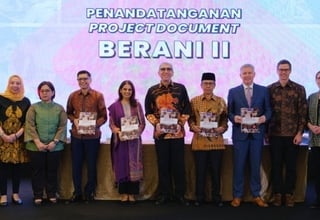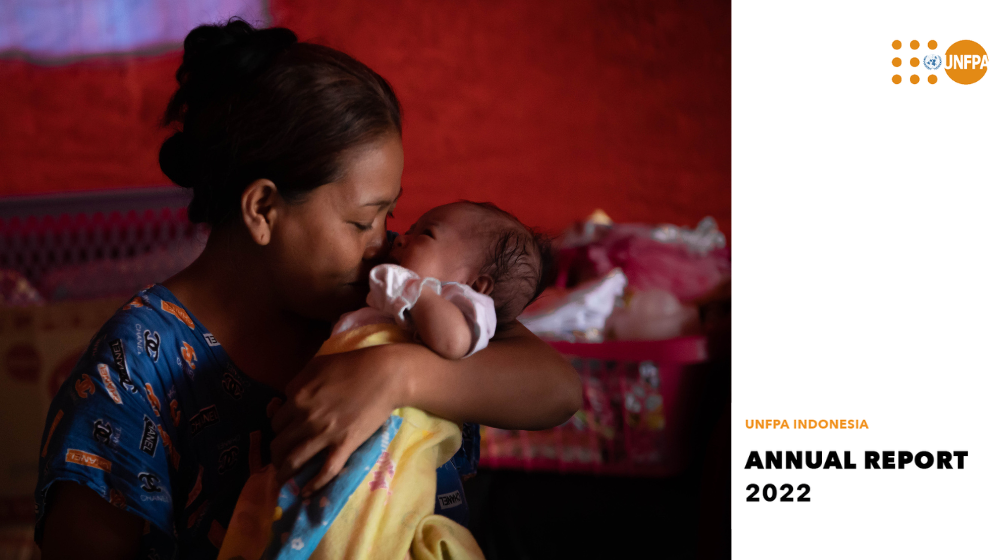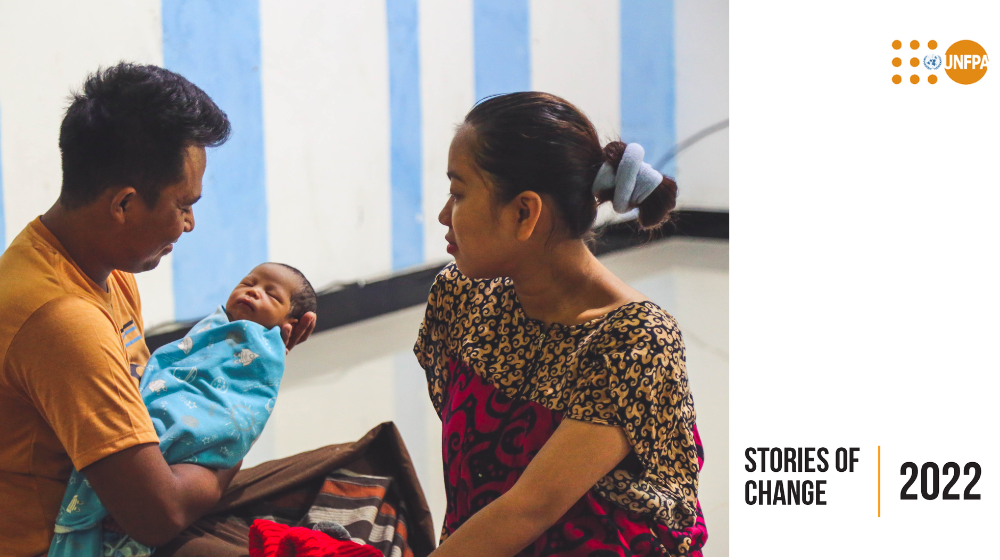JAKARTA, Indonesia, 22 August 2016: Education, family and the media are strategic entry points not optimally utilized to empower teenage girls and boys to make life choices that allow them to enjoy good health and wellbeing, pursue higher education, join work force and have a career, said expert speakers at the commemoration of World Population Day 2016.

Left to right: Dr. Ir. Subandi, MSc, the Deputy of Human Development, Community and Culture, Bappenas, Dr. Sonny HB Harmadi, Senior Advisor to the Coordinating Minister of Human Development and Culture as the moderator, Diandra Gautama, Indonesian female car racer representing young people and Dr. Ida Ruwaida, Sociologist from University of Indonesia
This year WPD, entitled Investing in Teenage Girls, had special emphasis on empowering girls to make life decisions, delaying the age of marriage and having access to age-appropriate comprehensive reproductive health education, and reproductive health information and services.
Premarital sex, teen marriage, early pregnancy, gender-based violence, HIV-AIDS and other sexually transmitted infections are among the challenges facing the young people in the country.
“When teenage girls are able to access education and health information and services, including sexual and reproductive health, they can create opportunities for themselves to realize their potential and fulfil their dreams. said UNFPA Representative Dr. Annette Sachs Robertson at the opening of WPD seminar in Jakarta.
“With more education, girls will eventually have higher labour force participation and better incomes, contributing to economic development. Investing in teenage girls will also accelerate the benefits of harnessing the demographic bonus.” Dr. Robertson added.
Data from the 2015 Socio and Economic Survey showed that the majority (91 per cent) of women aged 20-24 who were married before the age of 18 do not finish their high school education. With low education and low income, marginalized teenage mothers are also prone to domestic violence.
In many communities across Indonesia, girls have low bargaining power and are not able to say no to their boyfriends including on matters that are actually against their will and values. Education, said Ida Ruwaida, a sociologist from the University of Indonesia, can end this as it empowers girls to make their own decision, speak out their minds and boys to better respect girls’ decisions.
Minister of Women’s Empowerment and Child Protection Yohana Yembise called on participants of the seminar to support the “He for She” campaign that fosters a gender equality mindset among Indonesians: women and men, boys and girls that would eventually put an end to gender-based violence.
Chairperson of the National Population and Family Planning Board (BKKBN) Dr. Surya Chandra Surapaty explained the importance of investing on girls for their health and education. “They need access to good health and reproductive health care and information, access to nutrition for good health and they also need equal opportunities to realize their potential.”
The role of family is also crucial because it is the place where children learn about good life values, especially in an internet era where unreliable and sexually explicit materials are easily accessible. Surapaty stressed the role of parents to guide their children, spend meaningful time with them and promote them to adopt responsible behaviors.
The media, Dr. Sonny HB Harmadi, Senior Advisor to the Coordinating Minister of Human Development and Culture said, have a huge role to spread information and influence to public decision making as observed in previous elections, but have not yet been optimally utilized to promote and advocate population issues to wider public for better policies by decision makers and improved public RH awareness that shape behavior for their welfare and wellbeing.
The seminar was attended by around 350 participants comprising of policy makers, NGOs and young people.
Tags: -




